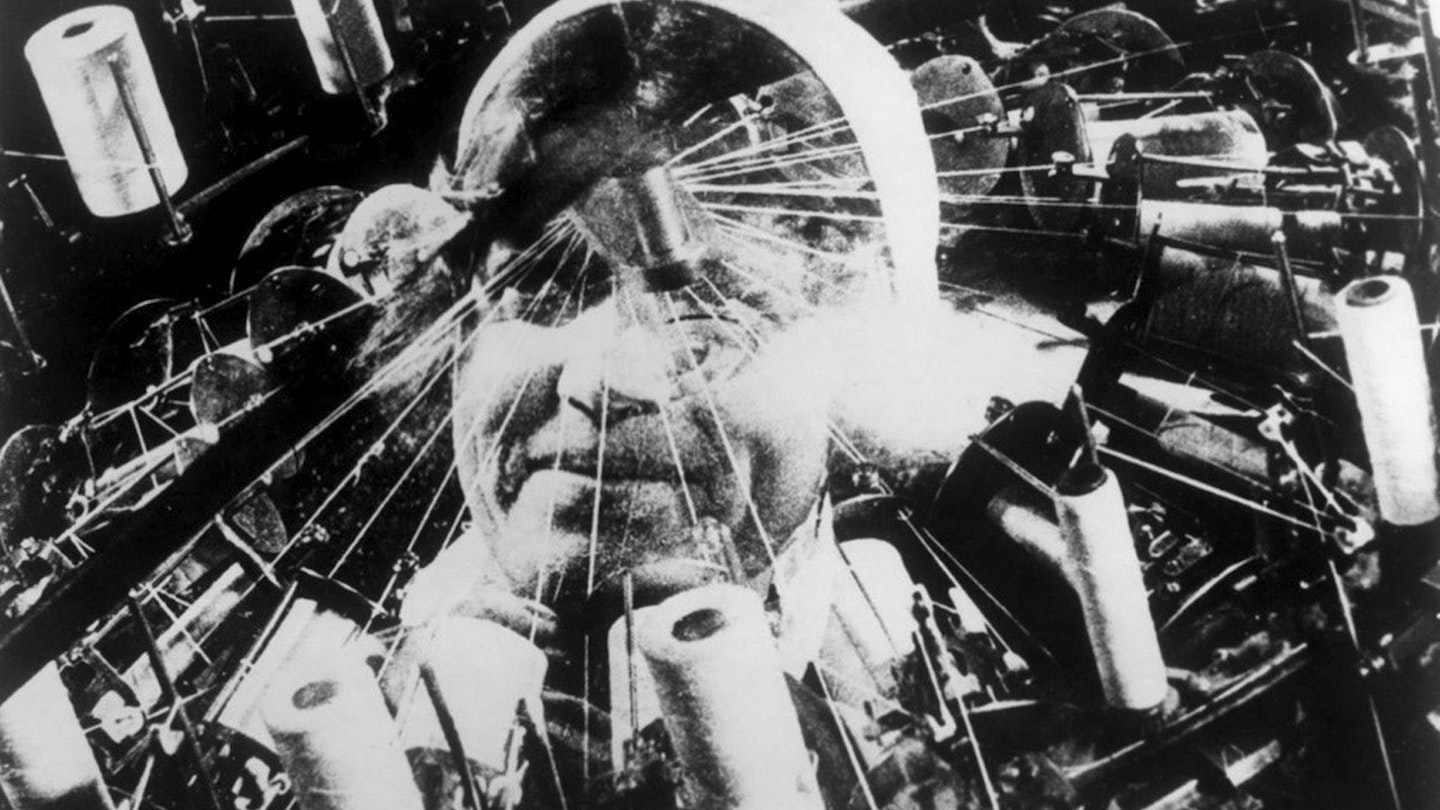Though clearly intended as avant garde, this 1929 classic emerges out of a then-popular film genre, the impressionistic portrait of the collective life of the big city.
We start with people waking, glimpse all human activity (marriage, divorce, birth, death, work, play, sport, sleep, drinking), get a lot of movement in public transport (the director, Dziga Vertov, and his brother, cameraman/star Mikhail Kaufman, fell out over the number of trams in the film) and see what could be taken as a hymn to the energy and bustle of the still-nascent Soviet Union. But this isn’t set in any particular place (it matches bits of Moscow, Odessa and Kiev) and is keen on playing with camera trickery – we get freeze frame, slow motion, fast motion, splitscreen, superimposition, animation, kinetic cutting and all manner of directorial hyperactivity. As the title suggests, the medium is the star.
Before the usual waking-up scene, which includes such unsoviet types as derelicts in the park, we begin in an empty cinema, with seats being lowered en masse and an audience assembling to watch this movie. The cameraman is sometimes framed like a giant bestraddling the city and sometimes shrunk so his image appears inside a glass of beer.
Towards the end, the camera tripod even begins to move without human agency, and we end on a superimposition of a closing shutter and a closing human eye. There are moments of everyday surrealism – chubby types covering themselves with mud at the beach (with some nudity) or being exercised in strange machines – and touches of near-cynical humour (a cut from a marrying couple to a divorcing one) that might well have ired the Stalinists about to come crashing down on the filmmakers, the masses observed and the vivacious mood of this picture.
